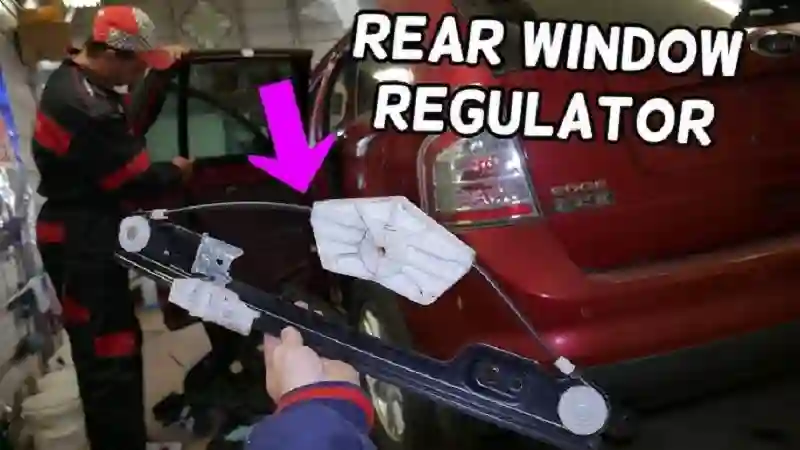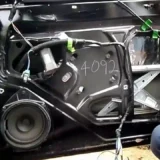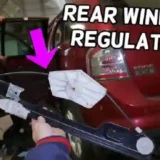When it comes to buying or selling a used car, various factors influence its resale value. One often overlooked aspect is the condition of components like the window regulator. Window regulators may not be as high-profile as the engine or transmission, but they play a significant role in a vehicle’s overall functionality and aesthetics. In this article, we’ll explore how window regulator failure can impact a vehicle’s resale value and why it’s crucial to address this issue before selling your car or considering a purchase.
Understanding Window Regulator Failure:
Before we dive into the impact on resale value, it’s essential to understand what window regulator failure entails. The window regulator is the mechanical or electrical component responsible for raising and lowering the windows in a vehicle. When it fails, it can manifest in various ways:
- Inoperative Windows: The most apparent sign of window regulator failure is when the windows no longer respond to the switch or button. This can leave a car with partially or fully immobile windows.
- Slow or Jerky Movement: A failing window regulator may cause the windows to move slowly or in a jerky manner. This can be frustrating for the driver and passengers.
- Unusual Noises: Some window regulator problems may result in strange noises when operating the windows. These noises can range from grinding sounds to clicking or squeaking.
- Stuck Windows: In some cases, a window may become stuck in either the open or closed position. This not only affects the vehicle’s security but also its usability and comfort.
Impact on Resale Value:
Now, let’s explore how window regulator failure can affect the resale value of a vehicle:
- Appearance and First Impressions: When a potential buyer inspects a used car, the overall appearance and condition are critical. Inoperative or partially functioning windows can give the impression of poor maintenance and neglect. This can immediately turn off buyers and lower the perceived value of the vehicle.
- Safety and Security Concerns: Malfunctioning windows can pose safety and security risks. A car with windows that don’t close properly may be vulnerable to theft, weather damage, or even accidents. Buyers are likely to factor in the cost of window regulator repairs when negotiating the price.
- Reduction in Usability: Functional windows are essential for driving comfort and usability. A car with malfunctioning windows may be less convenient to use, affecting its appeal to potential buyers.
- Repair Costs: Window regulator replacement can be expensive, especially if multiple windows are affected or if the issue has caused additional damage to the door panel or glass. Buyers may perceive the cost of repairs as a significant drawback and negotiate a lower price accordingly.
- Negotiation Leverage: A seller with a car in good condition has better negotiation leverage. On the other hand, a seller with known issues, such as window regulator failure, may need to lower their asking price to attract buyers.
- Professional Inspection: Many buyers opt for pre-purchase inspections by mechanics or technicians. A failing window regulator is likely to be identified during such an inspection, and the buyer may use it as a bargaining point to reduce the price.
Addressing Window Regulator Issues:
If you’re a seller:
- Preventative Maintenance: Before listing your car for sale, consider conducting routine maintenance, including inspecting and repairing window regulators. Addressing issues proactively can help maintain the vehicle’s resale value.
- Transparent Disclosure: If you’re aware of window regulator problems, it’s essential to be transparent with potential buyers. Clearly communicate the issues and provide an estimate for the repair cost. Honesty can build trust and help facilitate the sale.
- Professional Repairs: If you decide to repair the window regulator, consider having the work done by a professional. Ensure that you keep records of the repairs, as these can be reassuring to potential buyers.
- Adjust the Asking Price: If you’re unwilling or unable to repair the window regulator, adjust your asking price accordingly. Be prepared for negotiations, as buyers are likely to bring up the issue during the sales process.
If you’re a buyer:
- Inspection: Before purchasing a used car, have it inspected by a qualified mechanic or technician. They can identify any existing or potential issues, including window regulator problems.
- Negotiate Accordingly: If the vehicle has window regulator issues, use this as a point of negotiation. Consider the cost of repairs and factor it into your offer.
- Repair Consideration: If you’re willing to take on a car with window regulator problems, obtain estimates for the necessary repairs. This can help you make an informed decision about the purchase.
Conclusion:
The condition of a vehicle’s window regulators may not be the first thing on a buyer’s mind, but it can have a significant impact on resale value. Whether you’re a seller or a buyer, being aware of the potential consequences of window regulator failure is essential. Sellers should consider addressing these issues proactively to maintain the vehicle’s value and transparency during the sale. Buyers should be diligent in inspecting potential purchases and negotiating accordingly. By addressing window regulator problems, both parties can ensure a fair and satisfactory transaction.










